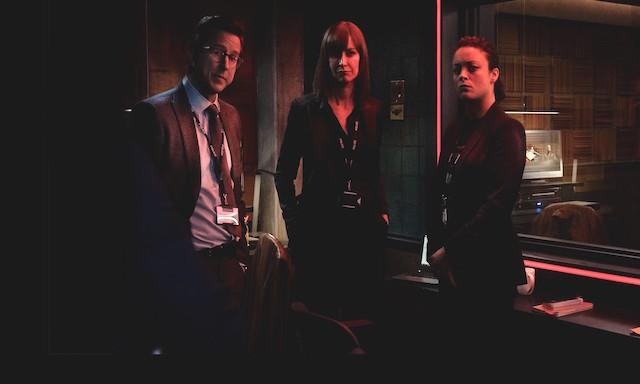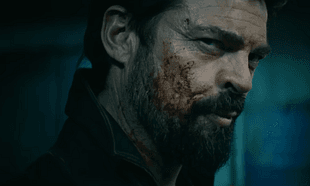Anyone who watches and enjoys police procedurals like 'Law & Order', 'Mindhunter', 'Line of Duty', or further back into something like 'NYPD Blue' or 'Homicide: Life on the Street', will tell you that the moment of truth in any episode comes with the interrogation scene.
It's interesting to note that the likes of 'Line of Duty' has now stretched these moments out to take almost an entire act of an episode, or in the case of 'Mindhunter', builds up to it in the first season and then uses the outcome of these interrogations in the second. 'Criminal', which takes in episodes from the UK, France, Germany, and Spain, straddles itself between episodic television - each episode unrelated to the last, for the most part - and excising anything leading up to the moment of truth.
Every episode kicks off with either the interrogation in progress, or it's just about to begin. Through the skilled acting and writing, as well as the nearly-acrobatic direction from the likes of Jim Field Smith in the English episodes, or Oliver Hirschbiegel in the German episode, the story for each episode unfurls with careful prodding and examination.
'Criminal' feels like it was initially written for the stage and then converted into a police drama, while still retaining in the intimacy and weight of a stage play in doing so. Each episode can watched without viewing the other, but the first episode presented with David Tennant, plays out like most of the episodes do. We're shown the criminal, they're being driven at by the interrogators, and they eventually crack under the mesmerism of it all, or reveal something that we didn't initially expect.
That almost all of the interrogators are experienced stage actors - Lee Ingleby, Mark Stanley, Sylvester Groth - is telling, as you get the sense that all of this would fall apart in the hands of actors who weren't up to the task. Yet, for all of this talent, and the ingenuity of the directors in keeping each episode moving forward and alive even though it's tied to one place, 'Criminal' ultimately ends up being repetitive.
Each episode, although it details with specific stories and delves into certain aspects of that country's psyche, feels curiously similar to the last. There's the initial setup, the prying nature, the fallback to reassess the tactics, the furtive counselling as they watch their quarry sit and stew, and then the eventual reveal with either the intended or unintended consequences of it.
It makes sense to attempt something like 'Criminal', to see if a police procedural can sustain itself with the build-up and investigation happening beforehand and distilling it down to the moment of truth. While the acting really is first-rate, and the dialogue is beautifully put together, 'Criminal' ultimately is let down by its own concept. You can only sit through so many interrogations, before you begin to wonder whether some of the investigation may have yielded the answers that are so arduously drawn out of them.
There's an air of self-satisifed smugness in each of the episodes; the interrogators knowing they've got the criminal du jour dead to rights, and that they simply need to pressure a confession out of them in order to close the case as is. Rather than this, wouldn't it be more exciting to have the second season - if there is one - to have it played out in a court?
As much as interrogation rooms are the crucible of police procedurals, courtrooms arguably have more effective range to them rather than an interrogation. The push-pull nature of the interrogation, though it yields some insight into how people crack under pressure, doesn't have enough in it to sustain it for twelve episodes, sadly.
Still, 'Criminal' does have its moments and it's an interesting experiment by Netflix and the makers to try and craft something new in a heavily saturated field of television.









































































